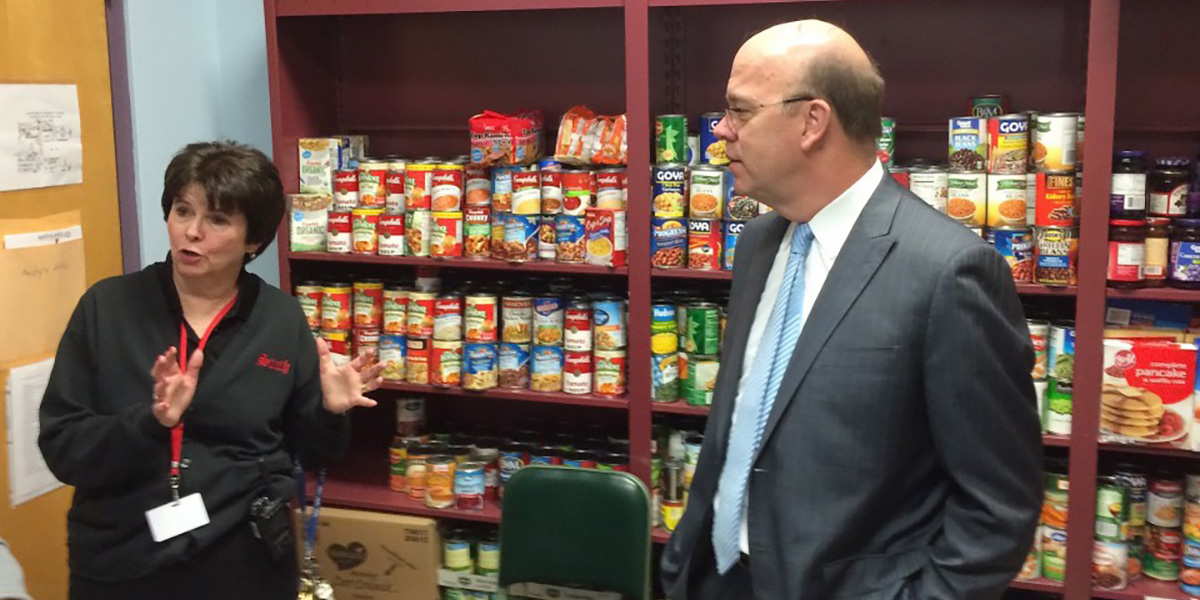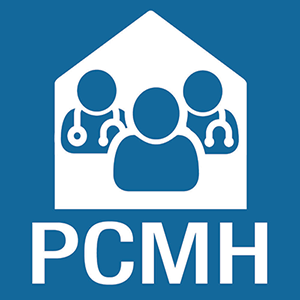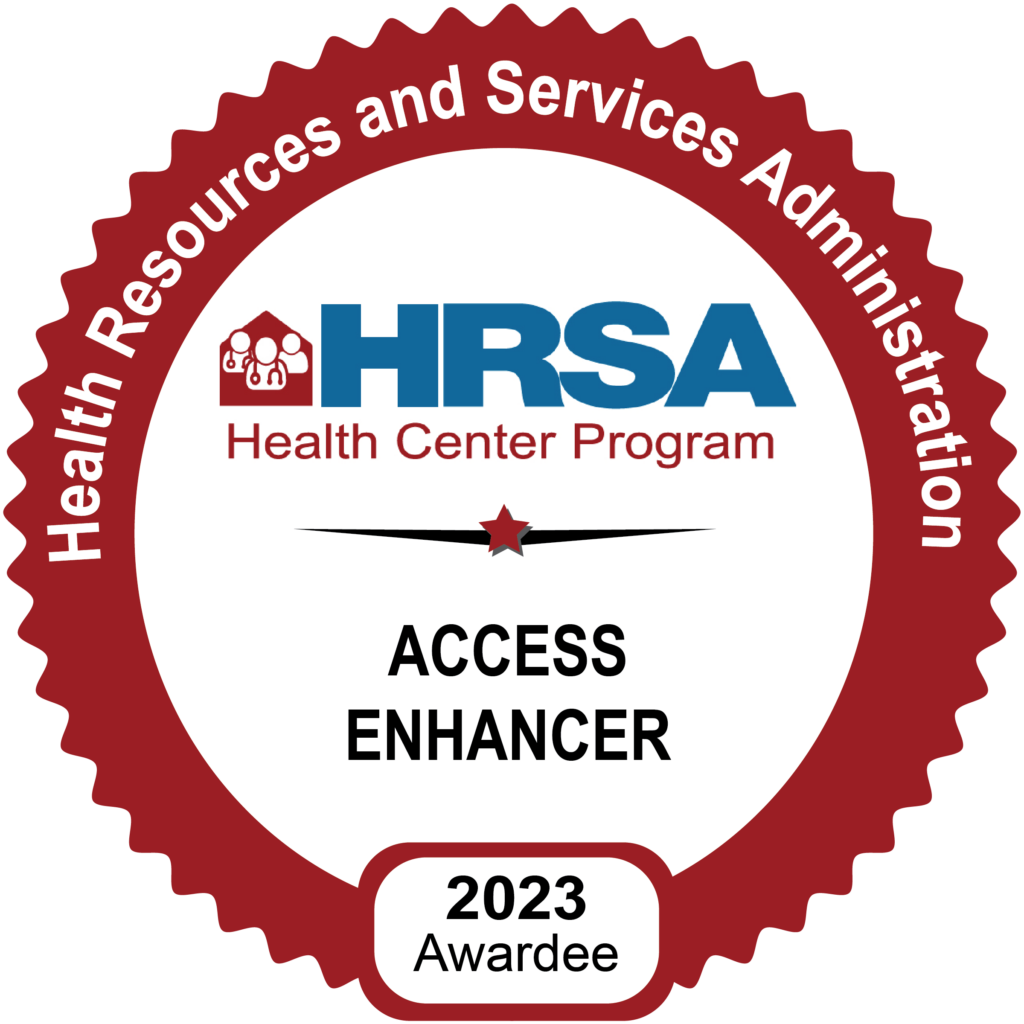WORCESTER — South High Community High School has seen its student’s health and welfare as integral to their success for decades, and now it has expanded its services to include mental health.
Along with its partner, the Family Health Center of Worcester, the school has maintained a health clinic since 1994.
The clinic is aimed at a population whose needs many times go far beyond what a school nurse can do. It’s not about cuts, bruises and headaches, but about nutrition, immunization and undiagnosed illnesses – those things typically handled by a pediatrician or family doctor.
But, with 187 homeless families and many newly-arrived students, some of who are immigrants, many of South’s students do not have primary care physicians, Family Health Center President and CEO Frances Anthes said. Often, the students are referred after a visit to the school nurse, who may see the need for something like a throat culture or a more detailed examination.
Susan Sleigh, the Family Health Center’s nurse at the school, says it is often the students’ only viable medical treatment.
“They will be sick all weekend and wait until Monday to come here,” Sleigh said.
The clinic has not only helped diagnose illnesses that students may not have been aware of, but many take advantage of a contract with the Massachusetts College of Pharmacy and Health Sciences that gets them free eye exams and eyeglasses. The clinic also offers dental care.
Among the top services provided are sports physicals and immunizations.
And a trip to the clinic also allows administrators to check for underlying issues. For example, many students may be homeless, or have no utilities, stressed due to their circumstances or even hungry.
McGovern praised the center, if not for its services, for simply being a place students can find a person to talk to. Several anecdotes were shared about students who are simply stressed out due to their circumstances and have no idea where to turn.
“It’s a friendly face,” said Principal Maureen Binienda, who was recently named superintendent for the district. “They come here because people are nice to them.”
Since the beginning of the current school year, the clinic has treated 1,200 students. Another 400 went to the clinic for mental health services that started being offered this year. Those issues can range from trauma-induced stress to addiction.
“We always knew there was a need, this proves it,” Anthes said.
It was the new services that drew McGovern, Anthes said.
“I was in his office and he was discussing the need for more mental health care and addiction prevention services and I said ‘we are offering it, come see,'” she said. “And, that’s the kind of person Jim is, he came.”
McGovern said the tour reinforced what he already knew. He described talking to inmates and asking how they got to where they were in life. He said their answers show they felt isolated, depressed, bullied and hopeless.
“They had nobody to talk to,” he said, adding the services South High and some other urban schools are offering “are trying to avoid people going down this road”
“That requires them to have a place to go,” he said.
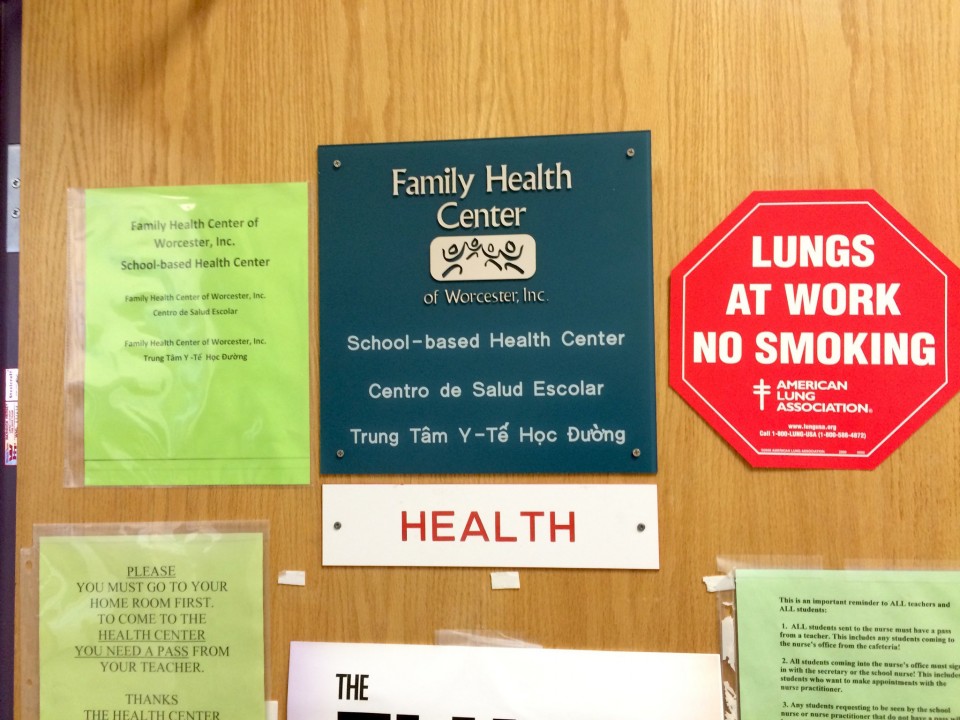
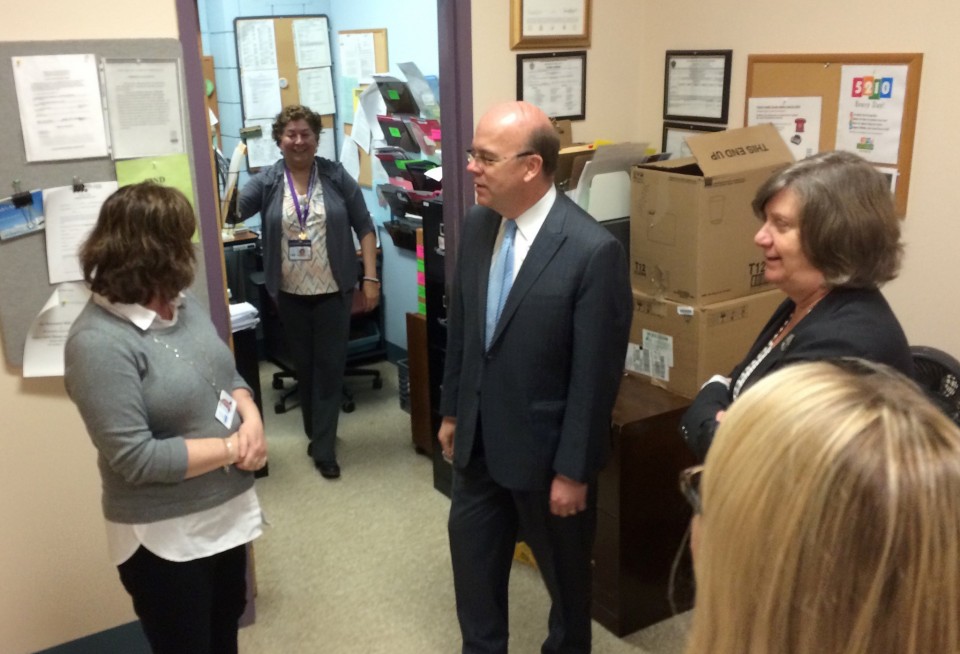
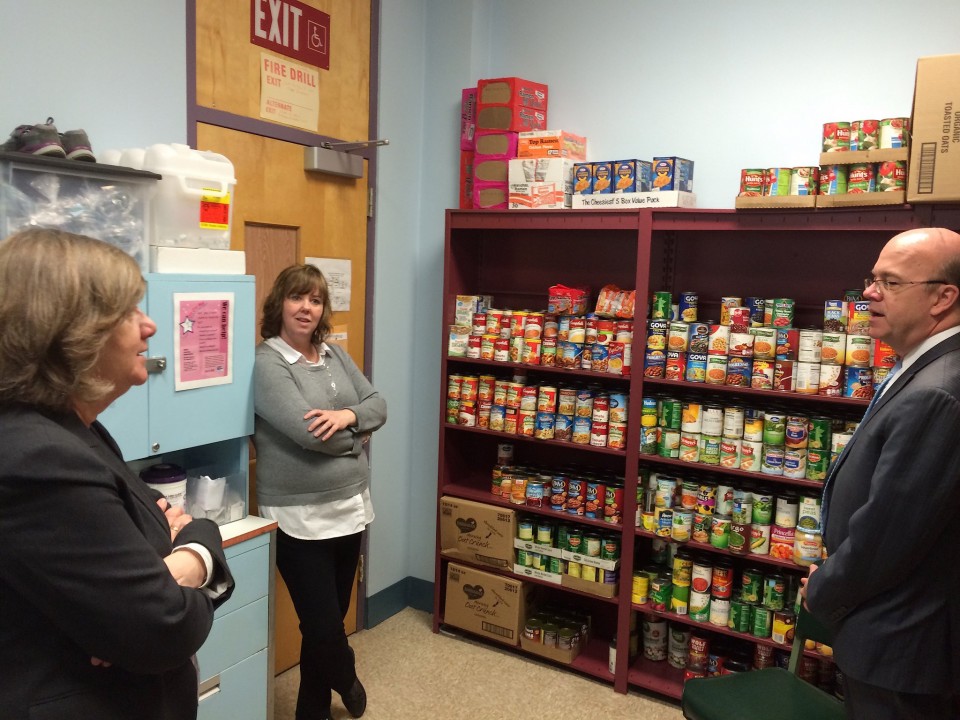
A large portion of Friday’s tour was spent in the school’s longstanding food pantry. Created by the school, not the clinic, the two areas often cross, according to administrators, who say food is often missing from homes for the same reason healthcare is, poverty and homelessness.
The pantry is supported by many in the community, including regular food drives during shows at the Hanover Theater for Performing Arts, businesses and school families according to Binienda.
Hunger in itself is a bane for students, McGovern said, noting it is believed $1.6 billion is lost in productivity and learning time per year due to people going hungry.
“People say we don’t want to spend any money, when for a much smaller investment, you could eliminate that,” McGovern said.
The pantry has also morphed over time. Once only foods considered healthful were purchased and stocked, until a homeless student asked for a cake mix to make a cake for his or her own birthday.
Binienda did not specify the sex of the student, but she said it made the pantry’s organizer’s see a deeper mission than simply hunger: The mental state of the students.
The pantry now has cake mixes and frostings for birthdays, she noted. In addition, Binienda said she is now working on getting donations of vouchers for Laundromats.
“A lot of times, if it comes down to laundry or food, parents will buy the food,” Binienda said. “But, if the clothes are dirty, the kids won’t go to school.”
And the students appreciate, administrators said. Many return to donate items to the pantry once they have graduated and have become successful, as do families who needed temporary assistance, Binienda said. When she was in the running for superintendent, she said many former students noted the school had helped them through tough personal times.
“This is what community is supposed to do,” McGovern said. “It doesn’t happen everywhere. But, if you don’t learn, and you are not educated, you probably will not have the future you are supposed to have.”
Binienda agreed, noting: “This is why school-based health centers need to be expanded: They work.”
Michael D. Kane
MassLive.co
